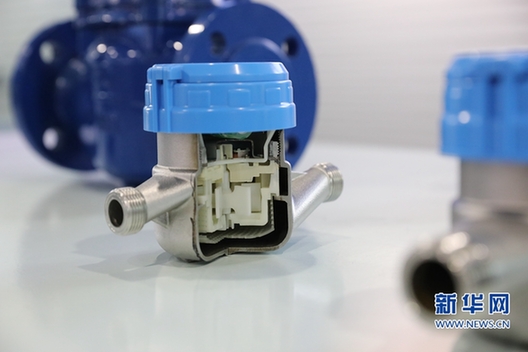

In the competitive field of narrowband technology, Fujian has got a head start, and Mawei district in the provincial capital of Fuzhou is taking a leading role. The district is home to a 54 billion yuan ($8 billion) IoT industry, which accounts for three-quarters of the total in the province. In a national perspective, its IoT products, including sensors and readers, have made significant progress.
In 2016, Mawei was named the fourth national IoT industrial park following Wuxi in Jiangsu province, Hangzhou in Zhejiang province and Nan’an district in Chongqing.
Located on the north bank of Minjiang River Estuary, Mawei was the cradle of China’s modern industries in the late Qing Dynasty (1644-1911). Over the years it accumulated a solid industrial foundation and recently became the mainstay of Fujian’s IoT development strategy.
The establishment of three major IoT projects — the country’s first open lab for NB IoT, the first administration for narrowband IoT commercial use, and the China (Fuzhou) IoT Incubator — is expected to further the industrialization of IoT. A billion-dollar industrial chain is taking shape in the historic district.
The Fujian Telecom branch started equipping a pilot network of NB IoT in Mawei in 2016 and collaborated with telecommunications giant Huawei in smart city applications based on the network.
Several residential communities in Mawei have installed new generation smart remote water meters to try out smart water supply based on NB IoT technology. The project was a collaboration between Mawei-based Prajna IOT Tech and the Fuzhou government.
 |
|
This smart water meter uses narrowband IoT technology. [Photo/Xinhua] |
The company plans to install 80,000 wireless sensors and other smart devices by 2025, with an investment estimated to be between 300 million yuan and 500 million yuan, to serve the city’s water leakage treatment program.
Cotech Engineering Fuzhou Corp (CEFC), which originated in Taiwan, is transitioning into the IoT sector, targeting the fields of smart architecture and intelligent electromechanics, according to its general manager, Li Yiting.
CEFC saw the potential in the China-led development of NB IoT technology and has set out to develop products based on the technology to gain market share.
The year 2017 is seen by industry insiders as the first year of NB IoT technology’s commercial use. In other words, the industry is in its fledgling stage, facing such challenges as forming industry standards, coordinating various telecom operators, and transitioning the market.
At a time when nothing is settled and there are many possibilities and opportunities, Fujian has positioned itself to take a leading role in the era of NB IoT.